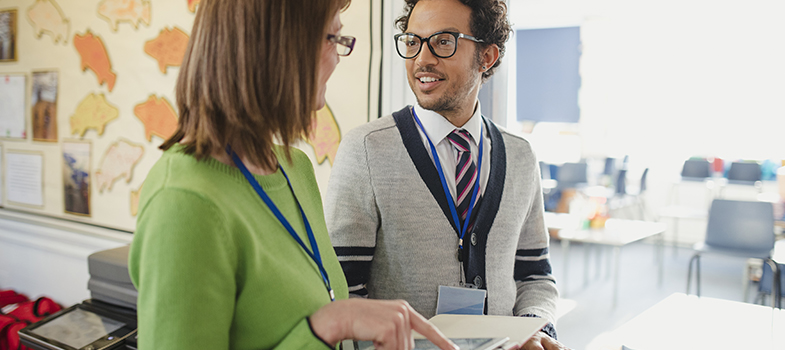2.1 Thinking about ‘working in partnership’
Open and inclusive approaches to partnership working have led to widespread recognition of the importance of parents and carers as partners - particularly during children’s earliest years, when care and education are closely linked. Parental and carer participation has also been enabled by specific educational legislation that gives parents and carers a greater voice as ‘consumers’ of a public service.
Working on an equal footing with parents and carers is important, as is the understanding that neither a practitioner nor the parent/carer is seen as ‘knowing best’. Each has a distinctive perspective on a child that complements the other. Working together as a team to support a child’s development and education opportunities maximises that child’s chance to achieve their potential.
Activity 4: Words and concepts associated with the idea of a ‘parent/carer partnership’
Think about each of the following words and identify those you would associate with a practitioner and parent/carer partnership. Then, in the blog, record the words you identified. For each word identified provide a short explanation for your choice.
- Involvement
- Support
- Collaboration
- Engagement
- Consultation
- Shared understanding
- Respect
- Discussion
- Knowledge
- Experience
Record your thoughts in a blog on the course website. [Tip: hold Ctrl and click a link to open it in a new tab. (Hide tip)]
Comment
All the words are relevant in some way. The partnership does not remain static and takes different forms as a child progresses through their development and education. In early years, the partnership draws widely upon a shared understanding and discussion; later on, it often evolves into a more identifiable set of roles and responsibilities.
Parents, carers and practitioners view partnership in different ways, and how a partnership is made workable varies considerably: what is appropriate in one area may not be considered suitable in another, and innovative practice in one setting may be commonplace elsewhere.
Given that practitioners usually initiate the partnership, they often take the lead in defining its nature and deciding the extent to which parents and carers enter the professional educational domain. Practitioners often assume that they know what is in the best interests of parents and carers (Bastiani and Wolfendale, 1996; Edwards, 2002), which can result in a partnership that is one-sided.
The educational environment and legislation that schools operate in often changes. Change is relevant because it often involves both practitioners and parents/carers. Change also has an impact upon the partnership and the wider school community. Over past decades, changes have included the requirement for practitioners to consult with parents and carers. There is now parental/carer representation at local authority and school governing body level. Steps are also taken to gather parents’ and carers’ opinions during school inspections.
The ‘Better Education for Children in Wales’ agenda has led to both major and routine government reviews designed to promote and achieve better educational experiences and educational achievement. In 2019 alone there were consultations on Our National Mission: A Transformational Curriculum, Keeping leaners safe guidance and Curriculum for Wales 2022 guidance. All those involved in a child’s development and education need to be aware of planned developments and changes. This is not always an easy task, but it’s one in which practitioners and governors can become involved, sharing these developments and impacts as part of their work and partnership with parents and carers. A knowledgeable, informed and engaged school community can support and enhance that change process.
2 A ‘partnership with parents and carers’?
